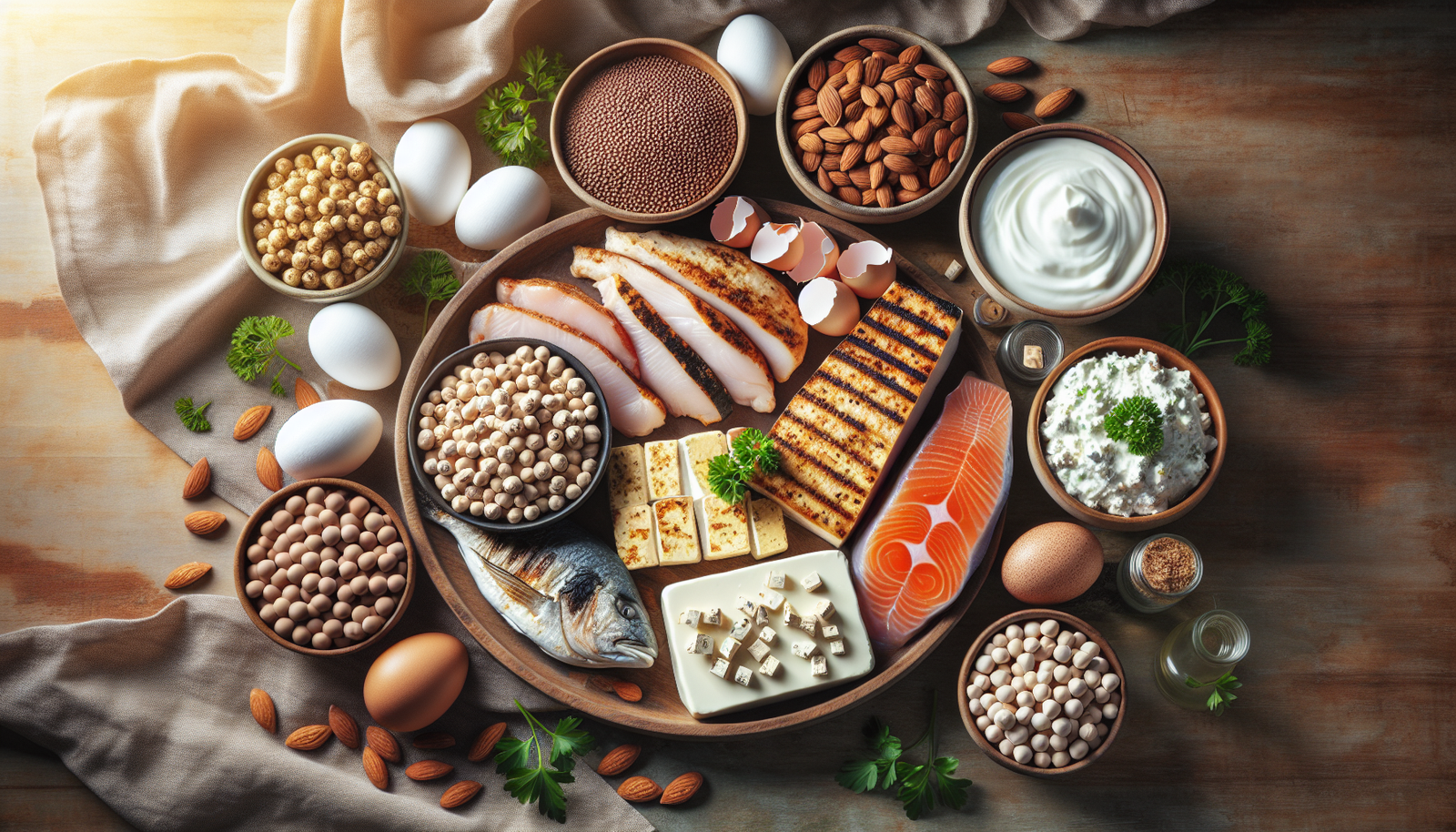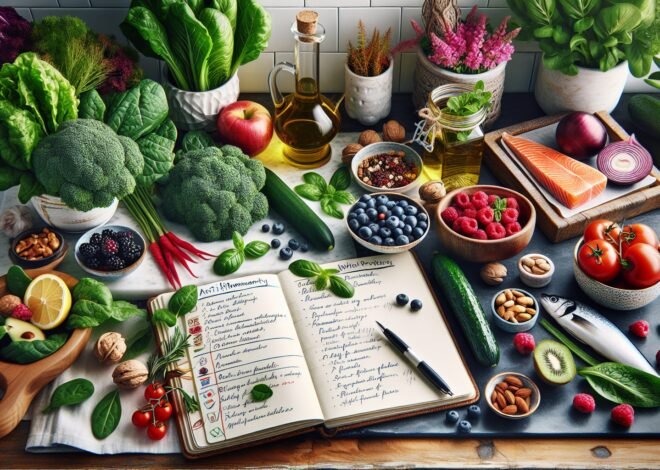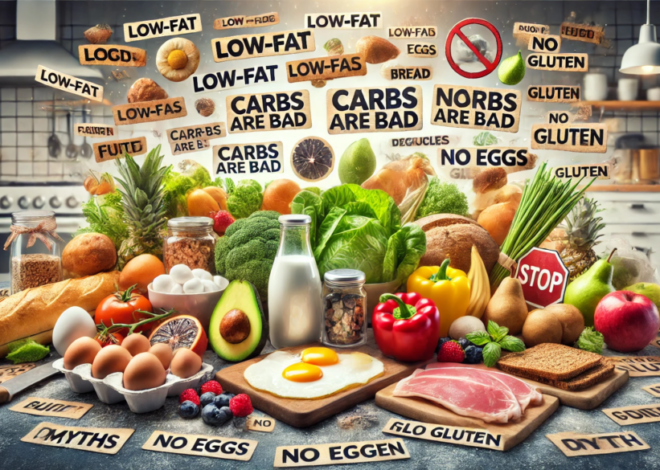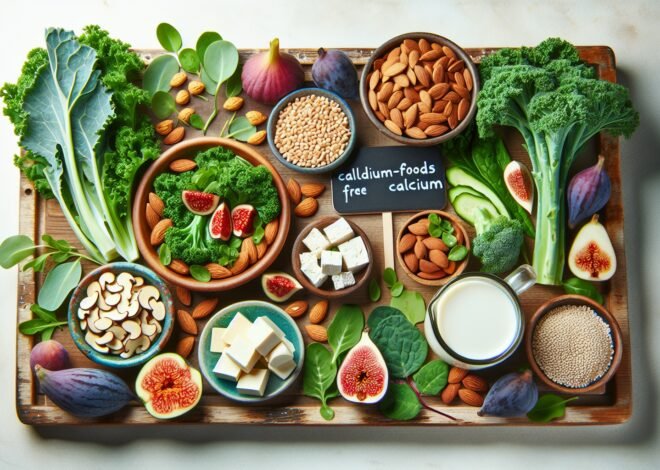
Best Sources of Lean Protein for a Balanced Diet
Lean protein for a balanced diet is essential to support overall health and wellness. Surprisingly, around 20% of your body consists of protein, highlighting its critical role. This introduction explores the best sources of lean protein that can fit into a balanced diet. From chicken and fish to plant-based options like legumes and tofu, incorporating diverse protein sources can aid weight management and promote muscle health. Understanding these sources can empower you to make informed dietary choices, enhancing your physical well-being.
Understanding Lean Protein
Lean protein is a vital component of a balanced diet, offering essential nutrients without the extra fats found in other protein sources. By understanding its definition, benefits, and recommended intake, you can make informed decisions about incorporating it into your nutrition plan. This section delves into everything you need to know about lean protein.
Definition and Importance of Lean Protein in Nutrition
Lean protein refers to protein sources that are relatively low in total fat and saturated fat. This includes foods like skinless poultry, fish, lean cuts of beef, and plant-based options such as legumes and tofu. The importance of lean protein lies in its ability to provide amino acids essential for muscle repair and growth, hormone production, and immune function. Additionally, it supports weight management and promotes satiety, helping you feel full longer and reducing the likelihood of overeating.
Health Benefits of Including Lean Protein in Your Diet
Including lean protein in your diet offers numerous health benefits. It supports muscle repair and growth, making it ideal for athletes and those engaged in regular physical activity. Lean protein can also aid in weight management by promoting feelings of fullness and reducing overall calorie intake. Moreover, it contributes to improved heart health by reducing the intake of saturated fats, helping to lower cholesterol levels. By choosing lean protein, you also decrease the risks associated with processed meats and high-fat animal products.
Recommended Daily Intake of Lean Protein for Optimal Health
Determining the right amount of lean protein depends on various factors, including age, gender, activity level, and overall health goals. Generally, adults should aim for about 0.8 grams of protein per kilogram of body weight. However, athletes or those with higher physical demands may require more, ranging from 1.2 to 2.0 grams per kilogram. It’s important to distribute protein intake throughout the day to maximize muscle protein synthesis and maintain energy levels.
Top Sources of Lean Protein
Choosing the right sources of lean protein is crucial for maintaining a healthy and balanced diet. From meat and dairy to plant-based options, there are plenty of nutrient-rich choices available. Explore these top sources to find the right fit for your dietary preferences and needs.
Lean Meats: Chicken, Turkey, and Pork
Lean meats such as chicken, turkey, and pork are excellent sources of high-quality protein. Chicken breast, with its low fat content and versatility, is a staple in many diets. Turkey offers similar benefits and is often used as a healthier alternative to red meat. Lean cuts of pork, such as tenderloin, provide rich protein content without the excess fat. These meats are not only high in protein but also contain essential vitamins and minerals like B vitamins, zinc, and iron.
Plant-Based Lean Protein Options for Vegetarians and Vegans
For those following a plant-based diet, there are numerous lean protein options to consider. Legumes, such as lentils and chickpeas, are rich in protein and fiber, making them a filling addition to meals. Tofu and tempeh, derived from soybeans, offer a complete protein profile and can be incorporated into a variety of dishes. Quinoa, a gluten-free grain, provides all nine essential amino acids, making it a fantastic protein source for vegetarians and vegans.
Dairy and Seafood: Nutrient-Dense Protein Choices
Dairy products and seafood are nutrient-dense options that provide ample protein while also offering other health benefits. Greek yogurt and cottage cheese are low-fat dairy choices that deliver a solid protein punch along with calcium and probiotics. Seafood, such as salmon, tuna, and shrimp, not only provides lean protein but is also rich in omega-3 fatty acids, which support heart and brain health. These options can be easily incorporated into meals for a healthy balance of nutrients.
How to Incorporate Lean Protein into Everyday Meals
Incorporating lean protein into your daily meals doesn’t have to be a challenge. With a little creativity and planning, you can enjoy delicious and nutritious dishes that support your health goals. Discover quick recipes, balancing tips, and meal planning strategies to effortlessly include lean protein in your diet.
Quick and Easy Lean Protein Recipes for Busy Lifestyles
Busy schedules often call for quick and easy meal solutions. Lean protein recipes that take minimal time to prepare can be lifesavers. Consider grilled chicken salad with mixed greens and a light vinaigrette, or a simple shrimp stir-fry with vegetables and brown rice. For a plant-based option, try a quinoa and black bean bowl with avocado and salsa. These meals are not only quick to prepare but also packed with the nutrients your body needs.
Balancing Lean Protein with Carbohydrates and Fats
A balanced diet is key to optimal health, and it’s important to pair lean protein with carbohydrates and healthy fats. This combination ensures a steady energy supply and supports overall nutritional needs. For instance, pair grilled salmon with quinoa and steamed broccoli for a well-rounded meal. Or try a turkey wrap with whole grain bread, hummus, and a side of mixed veggies. Balancing macronutrients helps maintain energy levels and promotes long-term wellness.
Tips for Meal Planning with Lean Protein Sources
Effective meal planning can simplify your approach to incorporating lean protein. Start by mapping out your meals for the week, focusing on a variety of protein sources to keep things interesting. Prepare ingredients in advance, such as marinating chicken or chopping vegetables, to save time during busy weekdays. Utilize leftovers creatively, like turning roasted chicken into a hearty soup or salad. With these strategies, you can seamlessly integrate lean protein into your diet without added stress.
Conclusion
A balanced diet benefits from incorporating lean proteins, which provide essential nutrients without excessive fat. Lean proteins such as chicken breast, fish, tofu, and legumes support muscle development and repair. They also aid in keeping you fuller for longer, which can help manage weight. Consuming a variety of lean proteins ensures a broad intake of vitamins and minerals. Opting for lean protein sources can reduce the risk of cardiovascular diseases by lowering cholesterol levels.
FAQ
What are the best sources of lean protein for weight loss?
Chicken breast, turkey, and fish like salmon and tuna top the list. Eggs and low-fat dairy also provide excellent lean protein options. Consider tofu and legumes for plant-based choices, ideal for those seeking weight loss.
How does lean protein benefit a balanced diet?
Lean protein supports muscle repair and growth while keeping you full longer, reducing the urge to snack. It boosts metabolism and balances blood sugar, contributing to overall health and energy levels.
Can lean protein help with muscle building and recovery?
Absolutely, lean protein is crucial for muscle growth and repair. It provides essential amino acids that aid recovery post-workout, making it vital for athletes and fitness enthusiasts.
How much lean protein should I include in my daily diet?
Aim for 0.8 to 1 gram of protein per kilogram of body weight daily. This varies based on activity level, age, and health goals, so adjust accordingly for optimal results.
Is lean protein suitable for vegetarians and vegans?
Yes, plant-based sources like lentils, chickpeas, quinoa, and tempeh offer rich lean protein. These options ensure vegetarians and vegans meet their protein needs without animal products.
What are some easy recipes using lean protein for a healthy meal?
Grilled chicken salad, baked salmon with veggies, and stir-fried tofu with broccoli are simple yet nutritious choices. These meals pack a protein punch while keeping preparation time minimal.











